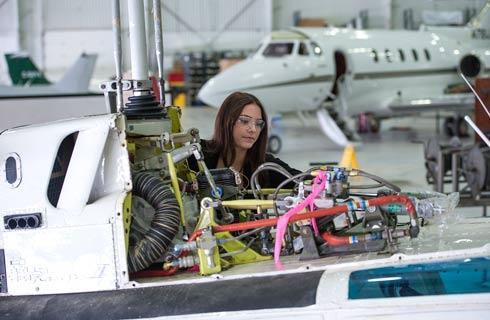应用科学研究生文凭-社会科学
Postgraduate Diploma in Applied Science - Science in Society

学历文凭
Postgraduate Diploma

专业院系

开学时间

课程时长

课程学费

国际学生入学条件
Entrance requirements for postgraduate study vary by programme with most requiring a minimum bachelor-level qualification in the same field, and some having additional requirements such as relevant work experience and/or professional registration in New Zealand. A postgraduate certificate or postgraduate diploma can usually be taken at any time after the completion of your bachelor's degree. If you hold an honours degree or postgraduate diploma you may be able to eligible for master's study by thesis only. In some cases if you hold a bachelor's degree you may apply for a coursework master's degree or for master's study by coursework and thesis. To study a PhD you usually require the completion of a master's degree, or a first-class or upper second-class honours degree in the same area of study, or a related discipline, as your intended area of research.
IELTS: Score of 6.5 in the academic module (with no individual band below 6.0)
TOEFL IBT: Score of 95 with a minimum writing score of 22
TOEFL PBT: score of 587 (TWE 4.5)
IDP—雅思考试联合主办方

雅思考试总分
6.5
- 雅思总分:6.5
- 托福网考总分:95
- 托福笔试总分:587
- 其他语言考试:Cambridge Certificate in Advanced English (CAE)<br>PTE: Overall score of 64 with no communicative skills score below 57
CRICOS代码:
申请截止日期: 请与IDP联系 以获取详细信息。
课程简介
The Postgraduate Diploma in Applied Science (PGDipAppSc) is a two semester programme, which builds on an undergraduate Applied Science degree. It allows people who are currently working to undertake blocks of study - one block for the certificate, a second block to complete the diploma. Alternatively, students may wish to complete the 120 point programme in a continuous run.<br>The Science in Society endorsement prepares students for a spectrum of opportunities as professional science communicators. Science communicators present scientific content in a relevant context and promote public interactions with science. Science communicators also participate in advising and devising strategies to increase the use of scientific information and evidence in personal and policy decision making. Graduates have found work with a range of employers including museums, media centres, universities and government agencies. Other graduates run their own science communication businesses.
相关申请
 预科
预科 奖学金
奖学金 实习机会
实习机会 在校学习
在校学习 跨境学习
跨境学习 校园授课-线上开始
校园授课-线上开始 在线/远程学习
在线/远程学习
开学时间&学费
学费信息仅供参考,请与IDP联系以获取详细信息
| 开学时间 | 时长 | 学费 | 地点 |
|---|---|---|---|
| 暂无 | 暂无 | 暂无 | 暂无 |
学校排名

世界排名201
数据源:
泰晤士高等教育世界大学排名
关于奥塔哥大学

成立于1869年的奥塔哥大学是新西兰第一所大学,拥有丰富而杰出的历史。奥塔哥大学在研究和教学方面享誉世界,在QS世界大学排名中位列全球前1%。奥塔哥大学在商业、健康科学和人文科学等领域提供了大量而多样化的学习选项。学生可以从200多门课程中选择。该大学在就业能力、国际化、教学和研究等方面均被QS评为五星。根据高等教育委员会(TEC)的教育表现指标,奥塔哥大学在学生表现和留存率方面也被评为新西兰第一。这强调了奥塔哥为学生提供的教育质量。该机构在新西兰各地都有校区,在达尼丁、惠灵顿、奥克兰、基督城和因弗卡吉尔都有校区。奥塔哥大学的学生群体也是多元化的,达尼丁校区85%以上的学生来自城市以外,全校有3000名国际学生入学。奥塔哥大学的学生享有良好的毕业成果,95%的学生在毕业后继续深造或就业。
本校相关课程
其他相关课程

MPhil/PhD History
 兰卡斯特大学
兰卡斯特大学泰晤士高等教育世界大学排名:185
学历文凭
Ph.D.
开学日期
课程费用总额


拥有一年的历史(政治)文学士学位
 斯旺西大学
斯旺西大学泰晤士高等教育世界大学排名:326
学历文凭
Bachelor Degree with Honours
开学日期
课程费用总额


考古学(荣誉)文学士学位
 伦敦大学伯贝克学院
伦敦大学伯贝克学院泰晤士高等教育世界大学排名:303
学历文凭
Bachelor Degree with Honours
开学日期
课程费用总额


艺术和创意产业文凭-人类学和社会学(C1AN)
 科廷大学学院
科廷大学学院学历文凭
Diploma
开学日期
课程费用总额


BA History and Politics
伦敦大学亚非学院
泰晤士高等教育世界大学排名:455
学历文凭
Bachelor Degree
开学日期
课程费用总额


哲学博士(社会科学与公共政策)
 奥克兰理工大学
奥克兰理工大学泰晤士高等教育世界大学排名:506
学历文凭
Ph.D.
开学日期
课程费用总额
















